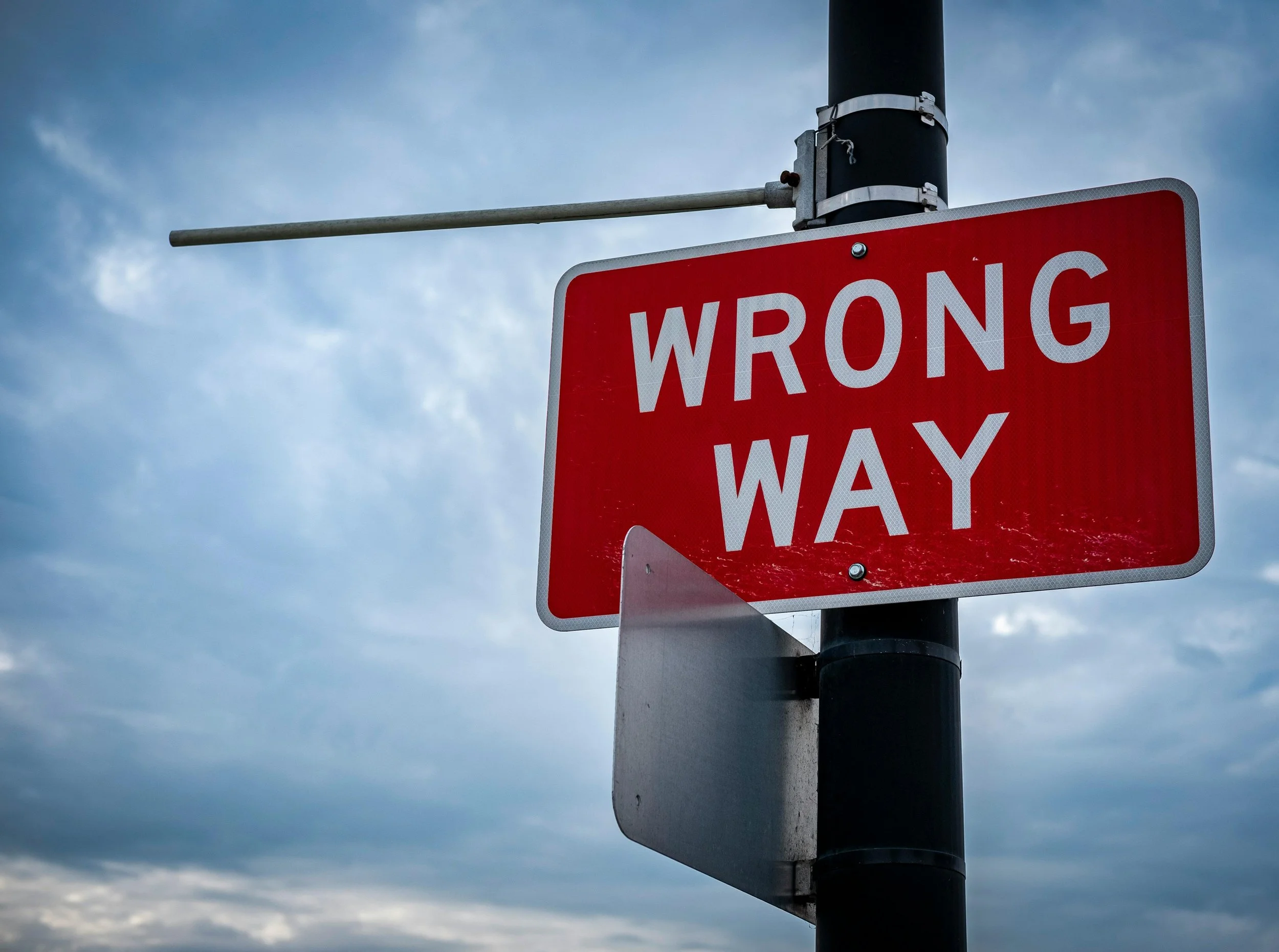

Tennessee Court Finds Duty to Defend Lanham Act Claims
This week, a case litigated by Gauntlett Law returned a verdict in favor of the insured. In Cincinnati Ins. Co. v. Select-Tech, Inc., Cincinnati sought declaratory judgment stating that (1) it had no duty to defend the underlying action, (2) it had no duty to indemnify any settlements resolving the underlying action, and (3) Select-Tech had no right to independent counsel. The court granted Select-Tech’s Motion to Dismiss as to the first issue and determined the remaining two were not yet ripe for determination.

Courts Routinely Failing to Accept Reasonable Constructions of Exclusions
It is widely known that courts are obligated to give an insured the benefit of the doubt when interpreting policy provisions. This rule is particularly forceful in determining the proper construction of an exclusion or other limitation on coverage. Contrary to what most policyholders might assume (and contrary to many recent rulings improperly applying coverage law principles), the court’s duty is not to evaluate the constructions offered by each party and determine which is most reasonable. Instead, the court must adopt any reasonable construction preferred by the policyholder without even evaluating the alternative construction from the insurer.

“Catch-All” Exclusions as Currently Written Are Not “Conspicuous, Plain, and Clear”
This blog supplements the analysis in the thoughtful article by Dominic Nesbitt published in the LA Daily Journal addressing the rise of “Catch-All” language added to Intellectual Property and Habitability exclusions. He focused primarily on the potential conflict with California statutory authority, but case law also shows the language and presentation of these provisions renders them unenforceable under the “conspicuous, plain, and clear” requirement developed in California case law.

Hawai’i Court Enforces “Failure to Conform” Exclusion
A recent decision in the United States District Court for the District of Hawai’i addressed two major points that previously had not been the subject of cases applying Hawai’i law. First, the court answered a question that remains an issue in many jurisdictions: what exactly is an “advertising idea” in Commercial General Liability (“CGL”) coverage for “use of another’s advertising idea in your ‘advertisement’”? Second, the court addressed the scope of the standard “Failure to Conform” exclusion.

“Knowing Violation” Exclusion Is Narrower Than Many Assume
Commercial General Liability (“CGL”) policies define “personal and advertising injury” in terms of seven enumerated offenses. Among the many standard exclusions applicable to that coverage is the “Knowing Violation” exclusion. It precludes potential coverage for “‘[p]ersonal and advertising injury’ caused by or at the direction of the insured with the knowledge that the act would violate the rights of another and would inflict ‘personal and advertising injury.’” Very few courts have taken the time to properly parse and analyze this language, which has led to conflicting interpretations (even from cases in the same jurisdiction).

Delaware Court Concludes Insurer Must Defend Copyright Claims Against Frontier
In the recently decided case of Frontier Communications Holdings Inc. v. Indian Harbor Insurance Co., a Delaware state court rejected the insurer arguments against potential coverage and determined Frontier was owed a defense in the underlying copyright infringement lawsuit. The court’s analysis of the “Deliberate Act” exclusion is particularly noteworthy for properly reinforcing that scienter-based exclusions cannot ordinarily be enforced to preclude an insurer’s duty to defend. Such exclusions are typically only applicable to an insurer’s duty to indemnify following an adjudication of the underlying claims.

Negligent Gun Sales Case Continues Worrying Trend for Policyholders
A common theme in high profile insurance cases is that it is difficult to have sympathy for the policyholders. The allegations against them in the underlying case, though legally unproven, are often convincing enough that it becomes easy to hope they don’t escape without consequences due to an effective insurance policy. Such is the case in a recent decision in which a firearms retailer was sued in three separate lawsuits by the State of New York as well as the cities of Buffalo and Rochester for allegedly selling gun parts in a manner that made it easy for buyers otherwise prohibited from owning firearms to acquire them. Looking at the bigger picture, however, the ruling against this unsympathetic entity sets precedent that can be used against ordinary policyholders in the future.

First Circuit Strictly Interprets “Additional Insured” Requirements
A recent case from the First Circuit applying Massachusetts law illustrates the difficulty of securing coverage as an “Additional Insured” under the policy of another entity. The decision serves as an important reminder for businesses to procure their own policies for any potential liability rather than relying on those of others. The case also highlights the danger of delayed notice, particularly in a state like Massachusetts that has not adopted the notice-prejudice standard embraced by the majority of jurisdictions.

Jurisdictions Split on Potential Coverage for Misuse of Models’ Images
Over the past several years, a number of very similar cases have arisen in jurisdictions across the country. The fact pattern in each is nearly identical. A bar or club used models’ images without permission in advertisements, and the models collectively sued to recover damages for use of their likeness. Interestingly, despite the identical fact patterns (and, in many cases, identical policy language), the coverage cases that followed have been split in their determinations.

Insurer’s Mistaken Denial for “Tilt” Arcade Trademark Case
Insurers too often deny potential coverage of a lawsuit based on the “gravamen” of the underlying complaint. This is contrary to the basic principle of coverage law nationwide that even a single potentially viable claim is sufficient to trigger an insurer’s duty to defend. Nowhere is this focus more obvious than in intellectual property lawsuits where insurers are quick to deny coverage based on the traditional IP torts being excluded by the standard “Intellectual Property” exclusion. A recent Indiana case exemplifies how insurers are too quick to dismiss the potential for coverage of other causes of action, such as unfair competition, that typically accompany the excluded IP counts like patent, copyright, and trademark infringement.

Narrowly Construing “Voluntary Payments” Provisions as a Limitation on Coverage
Standard Commercial General Liability (“CGL”) policies contain a “Voluntary Payments” clause, which states the insurer must not “voluntarily make a payment, assume any obligation, or incur any expense for damages [or] loss[.]” Courts have recognized that this language cannot be enforced literally as it is written. Litigation over these provisions typically focuses on the actions of the policyholder, but, interpreted broadly, these provisions could allow insurers to bypass state laws requiring prejudice for late notice. Furthermore, they may incentivize insurers to delay their decisions of whether to defend in the hope that the underlying lawsuit will resolve itself. Neither of these practices should be tolerated by the courts.

Right to Secure Insurer Funded Settlement for Non-Suits
A filed complaint is often preceded by several other indications that litigation is imminent. A workplace injury, terminating a disgruntled employee, and receiving a demand letter are all easily identifiable signs that a lawsuit may eventually transpire. As a result, defense attorney fees are often incurred well before an actual “suit” exists. News of an imminent lawsuit may also damage a business’s reputation. Many insurers insist that these are simply necessary as they have no duty to settle a “suit” that does not exist, but that insistence is undermined by case law.

Digging Deeper: Evaluating Potential Coverage for Litigation
In-house counsel is often tasked with the difficult job of assessing ongoing or imminent lawsuits against a company to determine whether there is potential insurance coverage. The difficulties of interpreting insurance provisions, particularly those related to “personal and advertising injury,” makes this nearly impossible to accomplish for any counsel without years of experience practicing coverage law. While there is no substitute for the advice of expert coverage counsel to properly evaluate these matters, this blog offers some guidance for those attorneys making such assessments and highlights several of the most commonly overlooked avenues to potential coverage.

Seventh Circuit Seeks Guidance for Interpreting “Pollution” Exclusion
In previous blogs, we have written about the unfortunate trend of federal judges ruling against policyholders based on rationale that conflicts with state court decisions. Ideally, federal courts should adopt the policyholder-friendly stance of the state courts, but a recent decision by the Seventh Circuit highlights an acceptable alternative: certification to the state’s highest court.

Worrying Trend: Ninth Circuit Expansively Interpreting Exclusions
In previous blogs, we have discussed several rulings by federal courts in New York that improperly deviated from standards of coverage law established by state decisions. In recent years, several Ninth Circuit panels have fallen victim to this same poor practice. Three decisions in the span of just over a year evidence a pattern of flawed analysis that is depriving California policyholders of the full protection that should be afforded under the terms of their insurance agreements.

Second Circuit Errs in Disparagement Analysis
In a pair of recent decisions, two Second Circuit panels affirmed district court rulings concluding there was no potential coverage under offense “d” of standard Commercial General Liability (“CGL”) policies. Both panels erred by failing to understand that the “potential coverage” standard that triggers an insurer’s duty to defend does not require perfect pleading and overlooked the significance of explicit statutory claims in the underlying complaints.

Lessons to Learn from Recent Lloyd’s Coverage Settlement
Since 2018, Monster Energy Company (“Monster”) has been embroiled in litigation with Vital Pharmaceuticals, Inc. (“Vital”). The dispute has generated over two dozen judicial decisions with more still to come. The related coverage action between Vital and Certain Underwriters at Lloyd’s London (“Lloyd’s”) was recently resolved via settlement. Although the settlement avoids creation of new coverage case law, helpful inferences can be made based upon Lloyd’s decision to settle. This saga also highlights an important lesson for policyholders about the importance of notifying all insurers of litigation as soon as possible.

Confusing and Deceitful Insurer Exclusions Invite Challenge
A recurring theme in Commercial General Liability (“CGL”) policy forms is that there has been an ongoing narrowing of “personal injury”/ “advertising injury” coverage provisions. The 1976 ISO CGL form broadly defined “advertising injury” as “any injury arising out of an offense committed during the policy period occurring in the course of the named policyholder’s advertising activities, if such injury arises out of such libel, slander, defamation, violation of right of privacy, piracy, unfair competition or infringement of copyright title or slogan.” Updates to the ICO forms in 1986 and 1998 resulted in the modern offenses that remain in policies to this day.

Best Billing Practices to Minimize Fee Disputes
You did everything right. You gave prompt notice of a claim and secured a defense from your insurer. No need to worry about the expensive legal bills anymore, right? Not so fast. Even if an insurer acknowledges its duty to defend (either willingly or following a declaratory judgment action), the carrier will carefully review every legal invoice line by line and search for expenses that are either uncovered or (in the carrier’s opinion) unreasonable.

Insured vs. Insured: An Exclusion Often Conspicuous by Its Absence
An Insured vs. Insured Exclusion is, as the name suggests, a policy provision that precludes coverage for lawsuits where people or organizations insured by the policy appear on both sides. They are virtually omnipresent in Directors & Officers (“D&O”) and Errors & Omissions (“E&O”) policies, but they are far less common in other policies that can potentially cover business litigation. Knowing all the coverage options under your own policies is obviously important as a defendant, but defendants are also advised to consider the plaintiffs policies.
